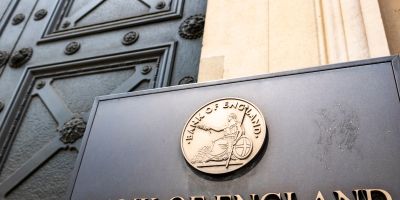Alumni spotlight: Dr Prinn Sukriket (MBA 2004)

Prinn graduated from the Business School in 2004. Over the past 20 years he has built his career as a Thai entrepreneur, academic, and business school founder.
Today, he combines his expertise across business, finance, IT, tourism, and education to lead Finn School of Business and Tourism in Bangkok and Phuket. Alongside academia, he is also active in wealth management, blockchain, and AI applications in education, reflecting his passion for both finance and technology. We caught up with Prinn as he remembers his time at Leeds and shares his insight and career journey.
What is your current role? Can you tell us a bit about what it involves?
I am the Academic Director and Founder of Finn School of Business and Tourism. My role involves setting the academic vision, designing innovative curricula, building international partnerships with UK universities, and mentoring students for global careers. At the same time, I consult in finance and investment planning, particularly in wealth management, blockchain, and digital assets. Balancing education and consulting keeps me both grounded and forward-looking.
How has your experience at the Business School helped in your work?
Leeds gave me the confidence to think internationally. The MBA programme exposed me to diverse perspectives and critical thinking frameworks, which I now apply in strategic decision-making. The Leeds ethos of combining theory with practice has deeply influenced how I design business and tourism curricula for Thai students who aspire to global pathways.
What are the most rewarding and challenging parts of your work?
The most rewarding part is seeing students progress from Finn to world-class universities in the UK and beyond, achieving success in careers they once thought impossible. The challenge is balancing rapid technological change with traditional academic structures, especially integrating AI, blockchain, and fintech into business education while keeping accessibility and quality for students at the forefront.
How did you first get interested in Bitcoin and gold?
My interest in gold goes back a long time it has always fascinated me as a timeless safe-haven asset and a mirror of global economic sentiment. Bitcoin came later, when I became involved with Bitkub as an advisor at the C-Level. That experience gave me an insider’s view of how digital assets were reshaping finance, beyond the hype. At the same time, I began teaching and researching blockchain, which deepened my appreciation of its transformative potential. What started as curiosity turned into conviction: I could see how Bitcoin’s decentralisation echoed gold’s historic role as a hedge. Whilst there are other options for hedge funds, both gold and Bitcoin, in their very different ways, represent resilience against uncertainty and together they symbolise the tension between tradition and innovation in modern finance.
What trends have you noticed in this area?
I’ve noticed convergence, traditional institutions are increasingly adopting Bitcoin, while gold remains a trusted anchor. Investors are diversifying into a “digital gold + physical gold” portfolio. At the same time, regulation and ESG considerations are shaping how these assets are traded and integrated into mainstream finance.
Are there differences in global approaches to investing in these areas?
Yes. In Asia, particularly Thailand, investors see gold as culturally and emotionally significant, while Bitcoin is embraced by younger, tech-savvy generations. In Europe and the US, institutional investors are more dominant, shaping regulation and product design. Emerging markets often treat Bitcoin as a hedge against currency volatility, while in developed markets it’s increasingly seen as an asset class within formal portfolios.
What are the pitfalls?
The biggest pitfalls are volatility, misinformation, and over-leverage. With Bitcoin, investors often underestimate regulatory risks and psychological stress from sharp price swings. With gold, pitfalls include storage costs and liquidity mismanagement. In both cases, the danger lies in treating them as speculation rather than disciplined portfolio components.
What are your best memories of your time in Leeds?
Leeds was a transformative experience for me. I fondly remember the vibrant international community, engaging discussions in class, and of course many evenings at the library. (And you know, if you studied at Leeds, you’d understand that it’s not really a library!) It was the pub just around the corner where my MBA classmates and I would often continue our conversations late into the night. Those lively debates over pints, mixing business theory, global perspectives, and a lot of laughter, remain some of my best memories and strongest networks today.
What ambitions do you have for the future?
Looking ahead, my ambition is to contribute to transforming Thailand’s education system at the national level particularly in the fields of business and tourism. I want to help position Thailand as Asia’s number one in tourism education, building on the country’s natural strengths as a global tourism hub. At the same time, my vision is for Thailand to be recognised among the top 10 in Asia for business education, by integrating international standards, innovation, and strong industry partnerships. Ultimately, my goal is to drive policies that make Thai education more global, more competitive, and more impactful, empowering students to thrive not only in Asia but on the world stage.
Find out more about The Leeds MBA
Connect with the LUBS alumni group in Thailand




